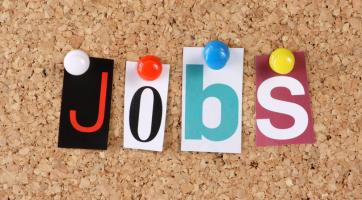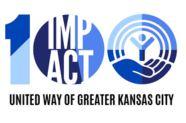Table of Contents
Surviving Debt: Two Essential Rules for Surviving Debt
Rule #1: Prioritize Debts Whose Non-Payment Immediately Harms Your Family
Non-payment of certain debts have sudden and dire consequences for your family. Deal with these debts immediately—either pay these debts first or otherwise follow advice here on how to manage these debts.
Never pay smaller, low priority debts just because you cannot keep up with high priority debts—“If I can’t pay my mortgage, at least I will keep up with my credit cards.” This is a bad idea.
If you don’t have enough money to make full payments on high priority debts, try to negotiate with the creditor to accept lower payments or save the money to be used later to get caught up, to cover the initial costs of moving to a new residence, or to pay for another car if your car is repossessed.
High Priority Debts Include:
Court judgment debt. You have been sued on a debt and a court has ruled for the creditor. The creditor has rights to seize part of your wages, bank accounts, and even your home or other property.
Criminal justice debt. Non-payment of debt arising from a criminal proceeding (such as fines, fees, and costs) can lead to immediate loss of your driver’s license, loss of income or assets, or even incarceration.
Automobile loans or leases can result in a creditor repossessing your car after you miss only a few payments. This is high priority debt, particularly if you need your car to get to work or for other essential transportation.
Rent payments for your residence (or for the lot on which your manufactured home sits). Swift eviction can result if you do not keep up these payments.
Utility bills. Non-payment of utility bills can lead to termination of gas, electric, water, and other utility service. In some states, programs to help people avoid disconnection may make utility bills a somewhat more flexible priority in the short term.
Child support debts will not go away and can result in very serious problems, including prison, for non-payment.
Debts That Quickly Become High Priority.
Other debts can be put off for a few months, but at some point soon, they become just as high priority debts as those detailed above, and then must be addressed immediately. Most notable are:
Home mortgage delinquencies (including non-payment of a debt to buy a manufactured home). Miss a month or two and you are unlikely to face foreclosure, but if you get behind by enough months, you face loss of your home. In some states this can happen without a court hearing. Use these strategies months before a threatened foreclosure.
Real estate taxes. If you do not have an escrow account with your mortgage lender you are responsible for paying your own property taxes. While non-payment of property taxes will not result in the immediate loss of your home, at some point your home will be subject to a tax sale. You should learn your rights in this area before it is too late.
Federal student loans are not in default until you are nine months behind on payments, but then you risk seizure of your tax refund and your Social Security or other federal benefits, wage garnishment without a court order, and denial of new student loans and grants. These strategies work best when you are not in default, so focus on your student loans as soon as practical.
Taxes owed to the IRS. Even if you do not pay your federal income taxes when due, always file your tax return on time, or file it by the deadline set by any requested extension. Then you can delay for a time paying taxes owed without serious adverse consequences. But at some point it will be critical to work out an arrangement with the IRS, because the IRS can seize your bank account, part of your paycheck and federal benefits, and even your home.
Lower Priority Debts.
Lower priority debts should not be paid ahead of higher priority debts if this prevents you from appropriately dealing with high priority debts. Low priority debts become higher priority once you are sued in court on the debt. Some low priority debts include:
Medical debt, such as payments due hospitals, doctors, other medical professionals, dentists, and ambulance companies. This debt does not affect your credit rating for six months, is unlikely to involve high interest rates or late charges, and it could take a year or two before you are sued, if you are ever be sued at all. Medical debt does not result in immediate loss of your property or income, unless you are successfully sued on the debt.
Credit card debt. You will not be subject to seizure of bank accounts, income, or property unless you are successfully sued on the debt or there is a default judgment taken against you. Debt collection contacts can easily be stopped.
Debt owed friends and relatives. Non-payment is not going to harm your credit rating or result in lost property or wages, and you may not even be charged interest. Of course, you want to repay these debts, but your friends or relatives who lent you money are unlikely to want you to lose your home or car just to pay them back sooner.
Private student loans. These loans typically do not involve collateral, and special remedies available to the government to collect federal student loans do not apply to private student loans. However, private student loans are difficult to discharge in bankruptcy.
Debts you owe as a co-signer. If you co-signed for someone else’s debt and put up your home or car as collateral for the other person’s loan, the loan is high priority. Other loans for which you are a co-signer but have put up no collateral are low priority. If others have cosigned for you, tell them about your financial problems so that they can make plans.
Deficiency actions after your car is repossessed. If a creditor repossesses your car and sells it for less than the amount owed on the car loan, it may seek the difference from you, called “a deficiency.” This is a low priority debt because you have already lost the car, your credit rating has already been damaged, and the creditor can do little other than sue you.
Charge accounts or other debts owed to merchants, particularly if the merchant has not taken as collateral the goods sold.
Small loans even when they take household goods as collateral. Non-payment is unlikely to cause you to lose household goods collateral because creditors rarely seize them. They have little market value, a court order is usually needed to seize them. It is time-consuming and expensive to obtain that court order.
Rule #2: Don’t Let Debt Collectors, Credit Score Worries, Stress, or Other Factors Force You into Bad Decisions
Don’t Make Decisions Based on Debt Collection Harassment. A debt collector’s job is to convince you to pay its debts first. Instead make your own decision as to which debt has the highest priority. The collector contacting you most aggressively is often collecting on a low priority debt. Do not be persuaded; just get the debt collector off your back.
Worries About Your Credit Score Should Not Move Up a Debt’s Priority. If you are behind on your bills, this almost certainly ends up on your credit record. You cannot stop this, short of always being current on your bills. Nevertheless, do not prioritize a particular bill first just because a collector is threatening to ruin your credit record.
Creditors routinely report the status of all of their accounts each month to a credit bureau. When the account is turned over to a collection agency, this also may be indicated on your credit report. By the time a collection agency is threatening you about your credit report, your report will already include the fact that the debt is a number of months delinquent and has been turned over for collection. The damage to your credit score has already happened. Paying now will not do much to improve your credit rating and failing to pay will not do much more damage.
Threats to Sue You Should Not Move Up a Debt in Priority Until You Are Actually Sued. Many threats to sue are not carried out. Even if they are, it may be years before you are actually sued. On the other hand, non-payment of rent or car loans may result in immediate loss of your home or car. It is hard to predict whether a particular creditor will actually sue on a past-due debt. How aggressively a collection agency threatens suit is no indication whether the creditor will actually sue, even if the threat appears to come from an attorney.
Worries About Creditors Withholding Services from You. Sometimes non-payment of a debt results in the creditor stopping doing business with you. Explain your financial situation and ask for understanding. If you are cut off, there should be other options in your community.
Feelings of Obligation. Your feeling that some creditors are more entitled to repayment than others should rarely be a factor in deciding which debts to pay first. Giving up the family home to pay off a creditor for whom you have good feelings is too big a sacrifice. If a creditor is sympathetic or has done you favors in the past, it is more likely to be patient as you work out your financial problems.
Stress. You are not alone if financial problems cause you embarrassment, panic, and stress. The pressure can cause disagreements, temporary separations, divorce, or even physical abuse. As you make the difficult choices associated with your financial problems, be aware of these emotional pressures.
Mental health counseling, family therapy, and marriage counseling may be useful. Health insurance may include free or low-cost mental health assistance and this help may be available from a variety of organizations on a sliding-scale fee basis or for free. Call your doctor, a trusted local credit counseling agency, or family services for a reference. Whatever course you choose, be aware of the additional stress you may be feeling and deal with it in the healthiest possible way.
KLS has short videos on Your Rights in Debt Collection and Dealing with Debt Collectors
This resource is from the National Consumer Law Center (NCLC).
Table of Contents



